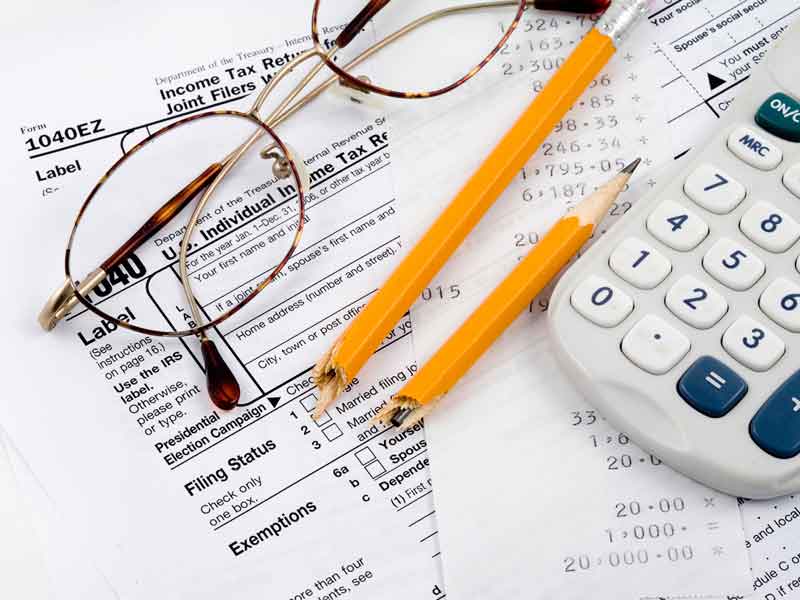
by sreamercpa | Mar 2, 2021 | accounting-tax, Cares Act
On February 27, 2021 the House of Representatives passed their $1.9 trillion stimulus plan. The bill was sent to the Senate and a vote is expected as early as Wednesday, March 3, 2021.
Here are some of the key provisions in the House bill:
Recovery rebates
The House bill provides individuals with a $1,400 recovery rebate credit ($2,800 for married taxpayers filing jointly) plus $1,400 for each dependent for 2021. As with the two recovery rebates enacted in 2020, the IRS will make advance payments, which the Service has been calling economic impact payments. The recovery rebate credit phases out for taxpayers with adjusted gross income (AGI) over $75,000 ($150,000 for married filing jointly) and uses 2019 AGI to determine eligibility unless you have already filed your 2020 return.
Child tax credit
The bill increases the amount of the credit to $3,000 per child ($3,600 for children under 6). The increased credit amount phases out for taxpayers with incomes over $150,000 for married taxpayers filing jointly, $112,500 for heads of household, and $75,000 for others.
Child and dependent care credit
The bill makes changes to the Sec. 21 child and dependent care credit, including making it refundable for 2021. The bill also increases the exclusion for employer-provided dependent care assistance to $10,500 for 2021.
Unemployment Compensation
One item not included was the Durbin/Axne proposal to exempt unemployment compensation benefits received from taxable income. It is unlikely that this proposal will be included by the Senate. However, as mentioned 2 weeks ago, Maryland passed SB496 providing a subtraction from Maryland income for certain unemployment insurance benefits.
If you have/are receiving unemployment benefits for 2020, we strongly recommend that you hold off in filing your 2020 tax returns until the Maryland changes can be implemented in your tax preparation software. If you have already filed your 2020 return, you may need to file an amended tax return to recover any Maryland state and local income tax paid on your benefits.

by sreamercpa | Feb 22, 2021 | accounting-tax
Last Monday (02/15/21) Governor Hogan signed THE RELIEF ACT. Here are a few key highlights:
1) Direct payments to Marylanders who filed for the earned income credit in 2019.
2) Payments of $1,000 to individuals with unsettled unemployment claims.
3) Repeal state and local income tax on unemployment benefits received.
4) Businesses can keep sales tax collected up to $3,000 per month for three months.

by sreamercpa | Jan 18, 2021 | accounting-tax, IRS
One consequence of the late passing to the new act is the potential for the delaying of the opening of tax filing season. Normally the IRS begins to accept electronically filed tax returns around January 27. However, with the changes in the new act, it is possible that the IRS may need to delay the start of tax season in order to reprogram their computers and to allow tax software companies like Turboi Tax, etc. to change their software and get IRS approval. We are closely monitoring this and will update our site if any new developments are released.

by sreamercpa | Jan 11, 2021 | accounting-tax
Earlier today (January 11, 2021) Governor Hogan announced that he will ask the 2021 state legislature to approve a $1 billion tax relief package designed to give direct payments to eligible low- and moderate-income Maryland taxpayers and tax credits to small businesses.
Called the Relief Act of 2021, here are some key points:
$267 Million Stimulus payments
Up to $450 for individuals and up to $750 for families, and is tied to those taxpayers eligible for the earned income tax credit in 2019
$180 Million Unemployment Tax Relief
Eliminating state and local income taxes on unemployment benefits
$300 Small Business Tax Relief
Sales tax credits for small businesses for up to four months.
Additionally, Governor Hogan wants to put his previous executive order preventing an increase to employer unemployment tax rates into law, as well as excluding state loan and grants from taxable income to businesses that participated in the Maryland state loan and grant programs.
The 2021 Maryland legislature convenes Wednesday, January 13 and Governor Hogan has stressed that this emergency bill needs to be passed immediately so the money can get into the hands of struggling Maryland individuals and small businesses.

by sreamercpa | Dec 28, 2020 | accounting-tax
Most taxpayers received a Federal “Stimulus Check” or “Economic Impact Payment” from the Federal government for 2020 tax year. We will need to reconcile your payment to determine if you are owed any additional payment when we prepare your 2020 tax returns. In the coming weeks you should receive Notice 1444 which will show the amount of your payment. When you receive this notice, please place it with you rother important tax documents that you will being to us when you are ready for us to prepare your 2020 tax returns.
On December 27, 2020 President Trump signed the new stimulus act which includes an additional $600 stimulus payment to each taxpayer and dependents. The President has stated that he wants Congress to increase this to $2,000 for each taxpayer and dependent, so we are waiting for Congress to see if both parties can reach an agreement. We will update our site with any new changes when they are published.

by sreamercpa | Dec 13, 2020 | accounting-tax
How to prepare for the 2021 tax filing season
There are things taxpayers can do before the end of the year to help them get ready for the 2021 tax filing season. Below are a few of them.
Donate to charity
There is still time to make a 2020 donation. Taxpayers who don’t itemize deductions may take a charitable deduction of up to $300 for cash contributions made in 2020 to qualifying charities. Cash donations include those made by check, credit card or debit card. Before making a donation, people can check the Tax Exempt Organization Search tool on IRS.gov to make sure the organization is eligible for tax-deductible donations.
The Coronavirus Aid, Relief, and Economic Security Act changed this law. The CARES Act also temporarily suspends limits on charitable contributions and temporarily increases limits on contributions of food inventory.
Report any name or address change
Taxpayers who moved should notify the IRS of their new address. They should also notify the Social Security Administration of any name change.
Find information about retirement plans
IRS.gov has end-of-year find tax information about retirement plans. This includes resources for individuals about retirement planning, contributions and withdrawals. The CARES Act retirement plan relief waived required minimum distributions during 2020 for IRA or retirement plan accounts. Also, eligible individuals can take a coronavirus-related distribution of up to $100,000 by December 30, 2020 and repay it over three years or pay the tax due over three years.
Contribute salary deferral
Taxpayers can make a salary deferral to a retirement plan. This helps maximize the tax credit available for eligible contributions. Taxpayers should make sure their total salary deferral contributions do not exceed the $19,500 limit for 2020.
Think about tax refunds
Taxpayers should be careful not to expect getting a refund by a certain date. This is especially true for those who plan to use their refund to make major purchases or pay bills. Just as each tax return is unique to the individual, so is each taxpayer’s refund. Taxpayers can take steps now to get ready to file their federal tax return in 2021.







